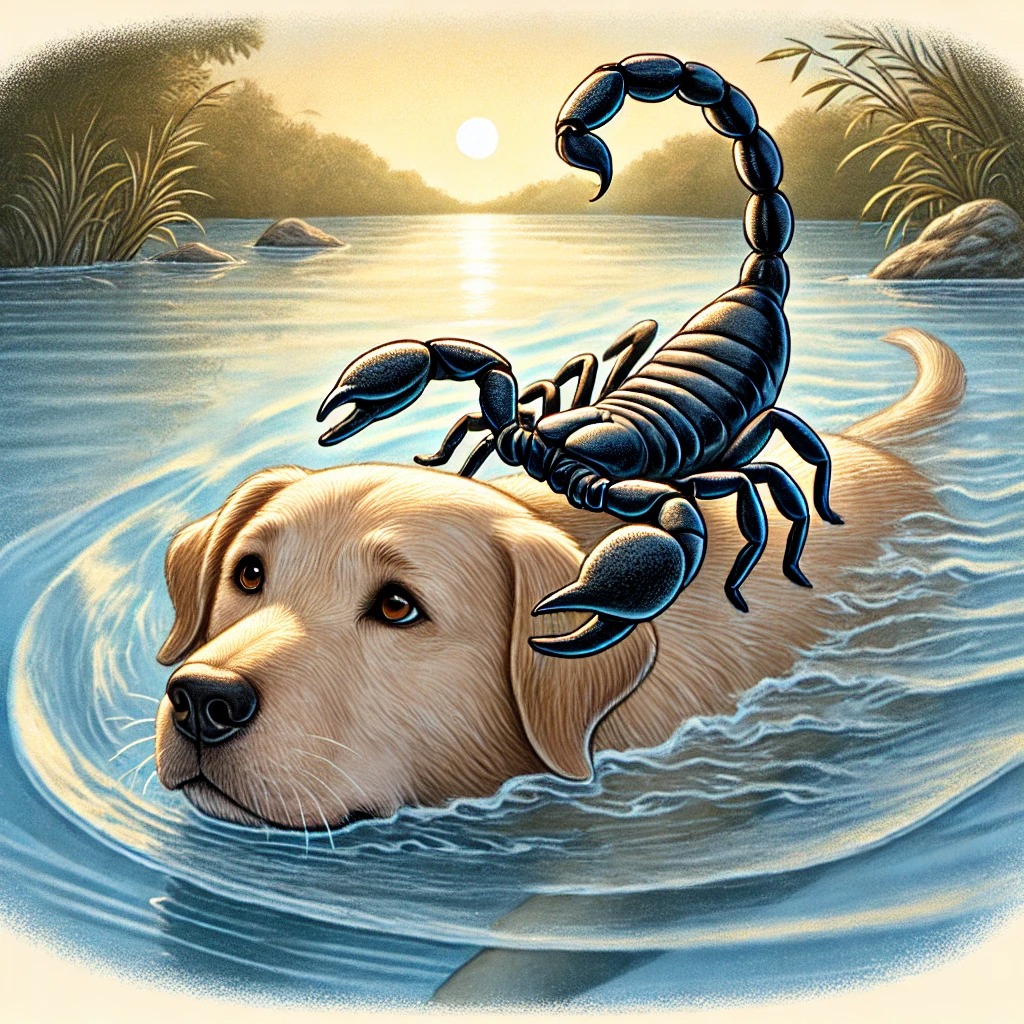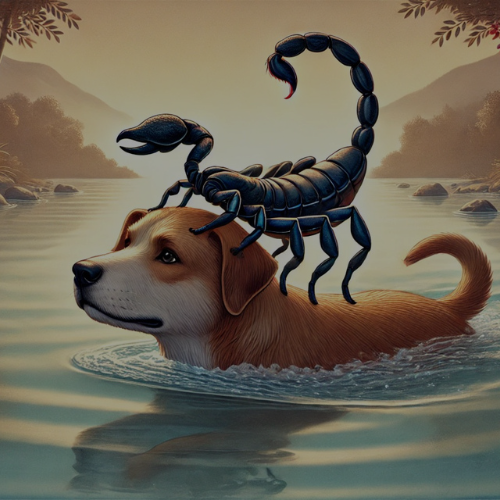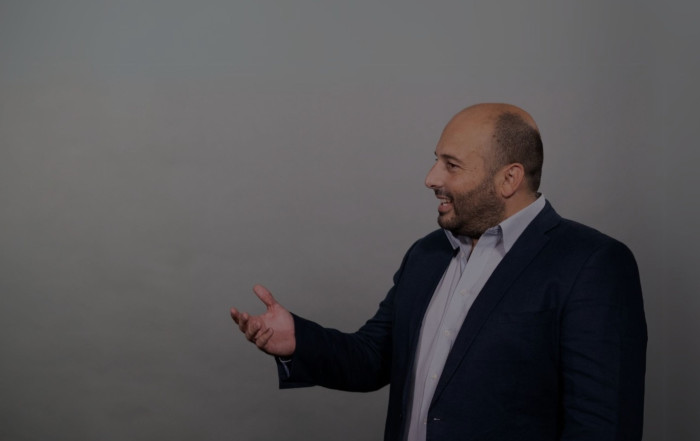Once upon a time, a scorpion who could not swim wanted to cross a river. He saw a dog nearby and asked, “Will you carry me across the river on your back?”
The dog was cautious. “You are a scorpion,” he replied. “You would sting me if I let you on my back, and I would drown.”
The scorpion shot back, “Why would I sting you? If I do, we’ll both sink and die. Trust me.”
Reluctantly, the dog accepted, and the scorpion ascended his back. Everything appeared good as they started across the river—until they reached the centre. Suddenly, the scorpion stung the dog.
The dog felt weak as the poison started to work and said, “Why did you do that? Both of us will sink now.”
Equally defying his fate, the scorpion said, “I couldn’t help it. That is my nature.”
Each victim of their nature, the dog and the scorpion, sank together. The narrative tells us that sometimes, actual nature rules even with promises or good intentions.
The story of the scorpion and the dog provides some blunt truths about relationships worth emphasising. One of the most important lessons is that, sometimes, people do not change their fundamental behaviour, even when logic or circumstances dictate they should. Just as the scorpion stings despite the consequence of drowning, some people repeatedly make poor decisions that hurt those around them, even when it’s against their interest.
In relationships, it’s crucial to recognise when someone’s behaviour is consistently harmful despite their promises to change. The scorpion’s insistence that it wouldn’t sting, only to do so later, mirrors how some people might make empty promises or act out of selfish impulses, disregarding the trust given to them. It’s a harsh reality, but sometimes people cannot—or will not—break away from destructive behaviours, even when they say otherwise.
The dog’s decision to help the scorpion also highlights a harsh truth about overly trusting others. Compassion is essential, but trusting someone without considering their history can be risky. If someone has repeatedly shown they are willing to harm others, it’s necessary to consider that pattern seriously before offering trust. Relationships should be about mutual care and respect, and it’s okay to protect yourself by maintaining boundaries.
Another point is that the need to “fix” or save someone, despite clear warning signs, can often lead to personal harm. The dog might have believed it could help the scorpion get across the river safely, thinking it could overcome its nature. In reality, the scorpion’s ingrained instincts took over. This bluntly suggests that, in relationships, trying to save or change someone unwilling to change themselves can be emotionally draining and ultimately destructive. It’s a reminder that self-sacrifice in a relationship must not come at the cost of your well-being.
The key takeaway is to value your safety and well-being. Set boundaries, learn from past behaviours, and understand that actions speak louder than words. It’s wise to extend empathy, but it’s just as important to recognise when empathy is being taken advantage of. Relationships thrive when both partners are genuinely committed to growth—not when one repeatedly stings, and the other continually bears the pain.

Share this Blog
Recent Thoughts
Rumours, Noise and Real Growth: Learning to Keep My Eyes on the Road
“Matthew is a closeted gay.”“Matthew jumps from woman to woman.”“He’s money-minded.”“I’ve heard he sees women for free if they ‘offer favours’.”“I’ve heard he’s
Ikigai vs. Workaholism: Why I’ve Given Up Perfectionism and Workaholic Tendencies
1) Facing Challenges Head-On Throughout my career, I've always faced problems head-on. Confronting challenges directly is part of who I am. However, there




